Search Results
Search
Filter results
Advanced Filters
Your search returned 314 Solutions
-
Developing work and employment opportunities
The "Socially Minded and Responsible Trading" (SMaRT) business model enables First Step Trust (FST) to develop work and employment opportunities for people with mental health conditions and other disabilities. In 2012 FST had three garages and two restaurants creating independent, sustainable income streams.
First Step Trust, Developing work and employment opportunities, United Kingdom -
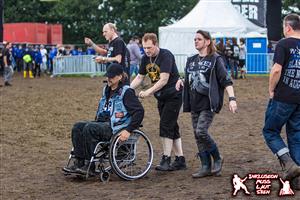
Buddy service for jointly attending cultural events
The organization originally developed from an online music magazine (New Metal Media), which provided information about accessible cultural events. Its European-wide buddy service is free of charge and allows persons with disabilities to enjoy events accompanied by a like-minded companion.
Inklusion Muss Laut Sein UG, Germany -
Livelihoods resource centres
As "one-stop-shops" Livelihoods Resource Centres (LRCs) provide training, career guidance and links between employees and employers. LRCs are delivered through local partner organisations and are unique in providing the full range of support that disabled people need when looking for jobs or becoming self-employed.
Leonard Cheshire Disability, Livelihoods resource centres, United Kingdom -
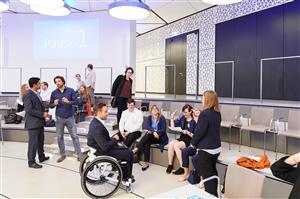
Job-matching based on coaching for students with disabilities and company-partnering
The participating talents receive coaching and make contact with interested companies. Companies gain know-how in the field of inclusion and employment of people with disabilities. Since the start of the programme in 2016, 130 students and 45 companies have completed the self-financed programmes.
myAbility Social Enterprise GmbH, myAbility Talent® Programme, Austria -
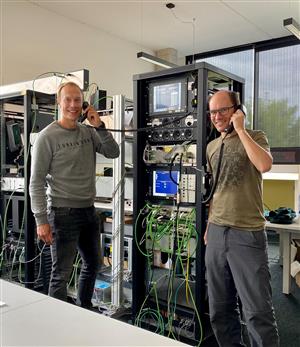
Employing people on the autism spectrum and hiring them out as consultants
Passwerk recruits people from the autism spectrum as consultants, places them in a suitable job, and offers them long-term job coaching. Passwerk consultants are specialized in IT services. In 2020 the company employed more than 120 consultants, and it has worked with more than 200 clients since 2008.
Passwerk, Passwerk, Belgium -
The right to an inclusive apprenticeship
On the basis of a pilot apprenticeship model introduced by a parent association, the Austrian Vocational Training Act of 1969 was amended. In order to make the vocational training system more accessible to many young people and to enhance their labour market integration, prolonged or partial qualification was introduced.
Austrian Ministry of Social Affairs, Health, Care and Consumer Protection, The right to an inclusive apprenticeship, Austria -
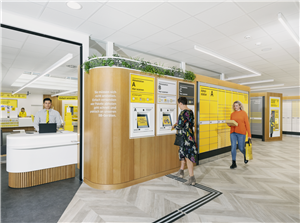
Accessible mail pick-up-stations for people with visual impairments
Österreichische Post, Austria’s leading logistics and postal service provider, introduced an accessible pick-up service for blind customers in 2019 for items that cannot be delivered to their homes. In 2020 the service was extended to all 479 pick-up stations in the country.
Austrian Post AG, Accessible pick-up-stations, Austria -
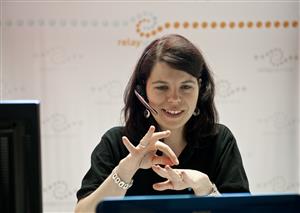
Customer services and hotlines are being made accessible to deaf persons. Thanks to RelayService, deaf people and persons with hearing or speech impairments can arrange appointments on the phone, request information from service hotlines, etc.
The relay assistants are known as "the ears and voice" of the deaf community. Users send their requests to the assistant via email, text message or fax, and the relay assistant makes the phone call and replies accordingly. It is also possible to contact the assistants via video chat or visit them at the office.
OEGS barrierefrei, Access to information & services for deaf people, Austria -
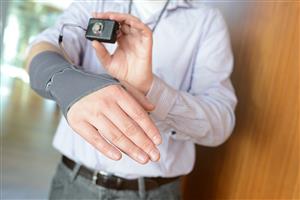
Competition among students for innovative devices and software
UNIKATE is a competition among a wide variety of students to solve every-day problems of persons with disabilities and the elderly. UNIKATE’s mission is to use their creative potential to invent tools and devices that support the specific needs, with the goal of constructing prototypes of the most promising ideas.
Austrian Council for the Disabled, Unikate Ideenwettbewerb, Austria -
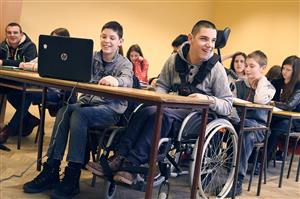
Textbooks in electronic, audio and video formats for mainstream primary schools
In 2013, UNICEF launched a project across Montenegro to produce DAISY-Textbooks and make them available in mainstream primary schools. DAISY-Textbooks have visual and audio options enabling children with disabilities to follow more easily and to study alongside their peers. In 2019, 70 schools were already involved.
UNICEF - United Nations Children's Fund, DAISY Textbooks, Montenegro